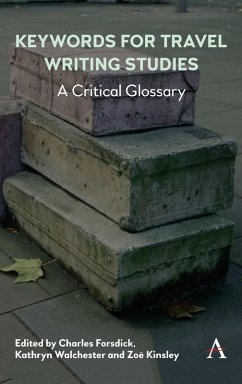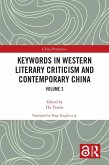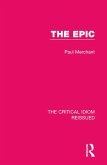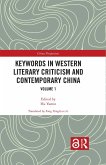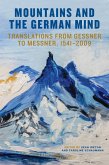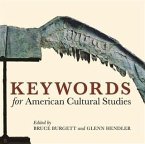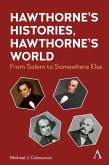The volume draws on the concept of the 'keyword' as initially elaborated by Raymond Williams in his seminal 1976 text, 'Keywords: A Vocabulary of Culture and Society', in order to present 100 concepts central to the study of travel writing as a literary form with cross-disciplinary implications. The significance of travel, the possibilities it holds for the individual and the impact it has upon our own society and those across the globe are debates that we encounter daily in the popular press and that have come sharply into focus in recent years at times of social, political, economic and humanitarian crises.
In its attention to the 'keywords of travel', this volume responds to what might be described as the 'mobility turn' in the arts and humanities over the past two decades. Travel writing has become a significant field of academic study across the humanities and social sciences, yet it is only in recent decades that it has been recognised as a serious area of enquiry and that the texts of travel have gained the status of important literary and cultural documents. At the same time, the volume acknowledges the way in which the notion of 'keywords' is being revised and considered in the academic community and more widely by other cultural stakeholders including museums and galleries. In terms of the keywords listed, whilst there is a marked absence of terms evoking ideas of travel and mobility in Williams's original work, there is a notable emergence of travel-related terminology in recent publications that indicates the significance of keywords such as 'diaspora', 'tourism' and 'place'.
In its attention to the 'keywords of travel', this volume takes into account the established status of studies in travel writing and the field's significance for an audience beyond the academy. It responds to what might be described as the 'mobility turn' in the arts and humanities over the past two decades. Each entry is around 1,000 words, and the style is more essayistic than encyclopaedic, with contributors providing a reflection on their chosen keyword from a variety of disciplinary perspectives. There is an emphasis on travelogues and other cultural representations of mobility drawn from a range of national and linguistic traditions, ensuring that the volume has a comparative dimension; the aim is to give an overview of each term in its historical and theoretical complexity, providing readers with a clear sense of how the words selected are essential to a critical understanding of travel writing. Each entry is complemented by an annotated bibliography of five essential items suggesting further reading.
In its attention to the 'keywords of travel', this volume responds to what might be described as the 'mobility turn' in the arts and humanities over the past two decades. Travel writing has become a significant field of academic study across the humanities and social sciences, yet it is only in recent decades that it has been recognised as a serious area of enquiry and that the texts of travel have gained the status of important literary and cultural documents. At the same time, the volume acknowledges the way in which the notion of 'keywords' is being revised and considered in the academic community and more widely by other cultural stakeholders including museums and galleries. In terms of the keywords listed, whilst there is a marked absence of terms evoking ideas of travel and mobility in Williams's original work, there is a notable emergence of travel-related terminology in recent publications that indicates the significance of keywords such as 'diaspora', 'tourism' and 'place'.
In its attention to the 'keywords of travel', this volume takes into account the established status of studies in travel writing and the field's significance for an audience beyond the academy. It responds to what might be described as the 'mobility turn' in the arts and humanities over the past two decades. Each entry is around 1,000 words, and the style is more essayistic than encyclopaedic, with contributors providing a reflection on their chosen keyword from a variety of disciplinary perspectives. There is an emphasis on travelogues and other cultural representations of mobility drawn from a range of national and linguistic traditions, ensuring that the volume has a comparative dimension; the aim is to give an overview of each term in its historical and theoretical complexity, providing readers with a clear sense of how the words selected are essential to a critical understanding of travel writing. Each entry is complemented by an annotated bibliography of five essential items suggesting further reading.
Dieser Download kann aus rechtlichen Gründen nur mit Rechnungsadresse in A, D ausgeliefert werden.

